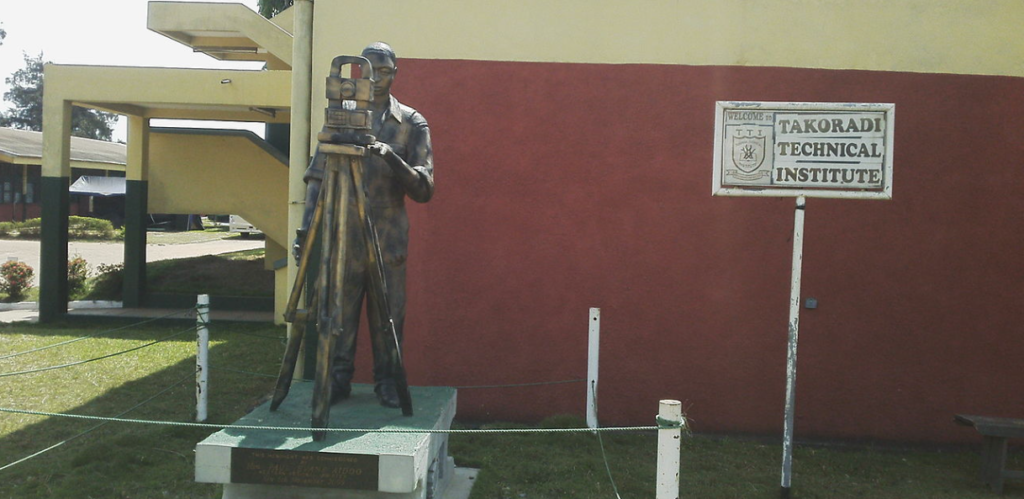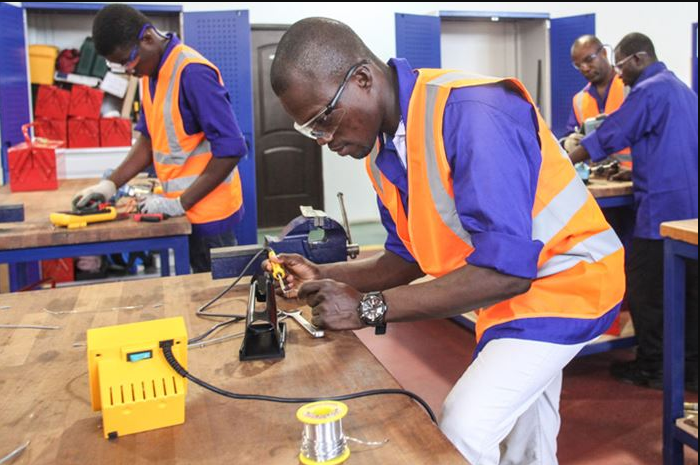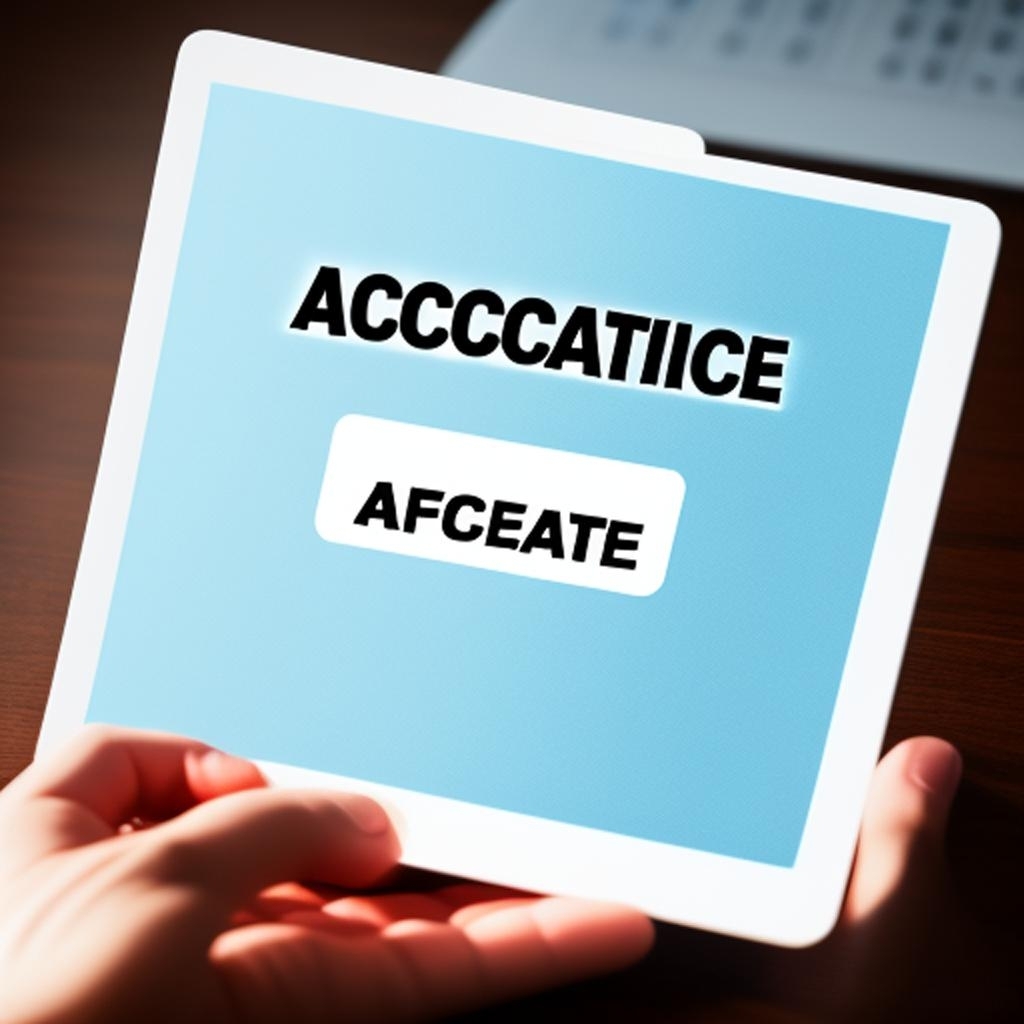Technical education in Ghana is a key driver of economic growth and development, providing individuals with the specialized skills and knowledge required to excel in various vocational and technical fields.
Unlike traditional academic institutions, technical schools in Ghana emphasize hands-on training, practical learning, and industry-relevant coursework.
In this article, we will delve into the benefits of attending a technical school in Ghana and present an extensive list of such institutions along with the diverse courses they offer.
Benefits of Attending a Technical School in Ghana
Before we proceed with the list of technical schools, let’s highlight the advantages of pursuing technical education in Ghana:
- Practical Learning: Technical schools prioritize practical experience, allowing students to apply their theoretical knowledge in real-world settings. This approach nurtures problem-solving skills and enhances students’ understanding of their chosen field. In other words, one gets to experience whatever career path they choose in both theoretical ways and practical ways and also giving them the benefit of practical knowledge and experiencing the theoretical aspects with their senses.
- Employment Opportunities: When it comes to the prospects of a job, technical education is mostly preferable to just theoretical knowledge as they possess the ready skills employers are looking for. Even if they require training of any sort, they do not require much investment like someone with just a theoretical background. Aside from that they have loads of skills that set them up for success in the real world already so even without a job coming nearby, they can easily do things or set up things that help them to be able to weather the storm of unemployability. Imagine someone with an auto mechanical Engineering background from a technical school, He or she wouldn’t have to wait to be employed, he just needs to get one to two tools, and vroom they go!
- Technical education contributes positively to national revenue mobilization through an expanded tax net. As more individuals are trained and absorbed into the job market, the number of employees eligible for tax payments increases. Ceteris paribus, as more people are attracted to tax payments, Government’s total revenue from the tax would increase. In turn, the successful execution and completion of government-sponsored projects would be enhanced. With technical education, individuals do not require much more training and orientation into the real world to be able to make an impact in the real world as compared with a theoretical-based type of education.
- Technical education shortens the learning curve enabling individuals to enter their chosen field of study earlier than traditional theory-based education which in turn increases the effectiveness and efficiency of the manpower base of the country. For instance, if two individuals aspire to be engineers and one goes through our normal theory-based education and one decides to go through the technical way, the one who went through the technical way would have been industry ready in four years and be as effective and efficient with loads of experience while the other one will be industry ready in probably 8 years.
- Technical Education prioritizes the training and development of individuals with technical and vocational skills, Ghana stands to significantly bolster its competitiveness on the global stage. A nation equipped with a highly skilled and specialized workforce gains a substantial advantage in various industries and economic sectors, positioning itself as a more attractive destination for investments and business collaborations.
List of Technical Schools in Ghana and Their Courses
Below is a list of some technical schools in Ghana and a detailed description and insight into the courses they offer. The list in this article is not the complete list of all the technical schools. this list is based on a few selected Category A schools in the country.
You can check out the list of all technical schools in the country and their various categories on YEN. With that being said, let’s get down to our list.
Kumasi Technical Institute (Category A)

Kumasi Technical Institute is located in the Ashanti Region of Ghana was established in 1976 with support from the central Government of Ghana which focuses on technical education and producing quality graduates in this regard.
Courses Offered at Kumasi Technical Institute
Kumasi Technical Institute offers varied technical programs that range from building Departments, Electrical Departments, mechanical Departments, and Related (Core)
- The Building Department handles courses like Plumbing And Gas Technology, Building Construction Technology, Wood Construction Technology, Fashion And Designing Technology, Furniture Designing Technology, Architectural Drawing Technology, Upholstery Design Technology
- The Electrical Department offers courses that are related to all parts of Electrical works which include: Electrical Engineering Technology, Electronic Engineering Technology, Refrigerator and Air conditioning Technology, Computer Technology, and Electrical Machine Rewinding Technology among other courses that set you up in the world of Electrical Engineering.
- The Mechanical Department handles courses that run across all parts of mechanical and auto Engineering including Motor Vehicle Technology (Automobile Eng.), Heavy Duty and Diesel Technology, Autobody Technology, Welding Technology, Industrial Mechanics Technology, and other new courses that set you up in the world of mechanical and Auto Engineering.
Aside from the various electives and field of specialization courses, one will be doing, you are also required to go through the core subjects which run across the various departments and the courses offered which include the English Language, Core Mathematics, Integrated Science, Social Studies, and Technical Drawing.
More information can be accessed on the school’s website at: https://kti.edu.gh
Asuansi Technical Institute (Category A)

Asuansi Technical Institute is a category A technical institute located in the Central Region of Ghana and boasts of being the best in training head and hand. also known as the great ASU-Tech.
Courses Offered at ASU-Tech
Asuansi offers varied technical programs that range from building Departments, Electrical Departments, mechanical Departments, and Related (Core)
The Core programs include English Language, Mathematics, Integrated Science, and Social Studies while the various Departments include; Business Trade which handles courses like Keyboarding, Accounting, and Business Information Technology.
- The Engineering Trade Department handles all aspects of engineering programs such as Motor Vehicle Engineering, Welding And Fabrication Technology, Mechanical Engineering Technology, Electrical Engineering Technology, Agricultural Mechanization Technology, Computer Hardware Technology
- The Building Trade Department handles courses such as Creative Art Technology, Plumbing And Gas Fitting Technology, Furniture Design And Construction, Wood Construction Technology, Building Construction Technology, and Architectural Drafting.
- The Hospitality Trade Department handles courses such as Hospitality And Catering Management.
The School also offers various extra school activities in the range of Sports and other clubs that enable students to have a rich and holistic growth and experience.
To apply, to this Institution, visit the Asuansi Technical Institute campus in Akwekrom, Ghana, and request an application form. This is based on the result gotten from the entry examination called the Basic Education Certificate Examination (B.E.C.E).
After reviewing your application, if successful, you’ll be sent an email or SMS stating your admission status.
Accra Technical Training Center (ATTC)

ATTC was established in July 1966 as a joint project by the Governments of Ghana and Canada. It was envisioned as a training school to train skilled workers for Ghana’s industrial requirements and it marked the first major Canadian support to Ghana in the field of technical education and training.
ATTC trains workers for different occupations and trades. Currently, the school is under the Technical Division of the Ghana Education Service of the Ministry of Education and also a category A technical school.
Courses Offered at Accra Technical Training Center (ATTC)
The School runs the following core subjects: English / Liberal Studies, Integrated Science, Mathematics, Information Communication & Technology, ICT, and Technical Drawing which is compulsory for all students.
ATTC runs various programs aside from the core subjects such as
- Architectural Drafting
- Auto Body Repairs
- Building Construction Technology
- Business System Technician Course
- Computer Technology
- Creative Art Technology
- Electrical Engineering Technology
- Electronics Engineering
- Industrial Maintenance
- Mechanical Engineering Technology
- Motor Vehicle Engineering
- Plumbing & Gas Fitting Technology
- Refrigeration & Air-Condition Technology
- Small Engine Repairs
- Welding and Fabrication Technology
- Wood Construction Technology
ATTC also offers the following training programs:
Block Release, Pre-employment, Afternoon / Evening, Part- Time Classes, Special Requests from formal and informal sectors, and short courses for Industry / Commerce
More information can be accessed on their main website at https://attcghana.com
Cape Coast Technical Institute (Category A)

The illustrious history of Cape Coast Technical Institute dates back to its inception in 1955, credited to the visionary efforts of the Late Joseph Kadesh Abraham. Originally established as “The College of Architecture,” the institute has undergone several transformative phases, shaping its identity and purpose over the years. Notably, in 1976, the Ghana Government took a significant step by absorbing the institute into the public system, leading to its present-day name, Cape Coast Technical Institute.
The visionary founder, Joseph Kadesh Abraham, laid the foundation for an institution that would not only impart technical knowledge but also serve as a beacon of excellence in the field of architecture. The initial focus on architecture marked the beginning of a journey that would eventually embrace a broader spectrum of technical disciplines, reflecting the evolving demands of the nation and its workforce. Through strategic adaptations and a commitment to meeting the changing needs of Ghana’s rapidly developing society, the institute witnessed a series of name changes, each representing a distinct phase in its growth and transformation.
However, it was the pivotal moment in 1976 when Cape Coast Technical Institute was integrated into the public educational framework that solidified its position as a prominent institution of technical education in the country. Since its absorption into the public system, Cape Coast Technical Institute has flourished, becoming a center of excellence renowned for its commitment to nurturing skilled professionals. The institute’s curriculum expanded to encompass a wide array of technical fields, such as engineering, information technology, health sciences, business, and more.
By diversifying its offerings, Cape Coast Technical Institute positioned itself as a comprehensive institution, capable of addressing the diverse vocational needs of Ghana and contributing to the nation’s sustainable development. The government’s recognition and support of the institute played a crucial role in enhancing its infrastructure, faculty, and facilities. As a result, Cape Coast Technical Institute continues to attract talented individuals seeking specialized education and hands-on training in various technical disciplines.
Courses Offered at Cape Coast Technical Institute
The School runs the following core subjects: English Language, Integrated Science, Mathematics, and Technical Drawing which is compulsory for all students regardless of elective or department.
The Engineering Trade Department offers Motor Vehicle Engineering, Mechanical Engineering Technology, Electrical Engineering Technology, Refrigeration, And Air-Condition Technology.
The Building Trade also handles courses such as Creative Art Technology, Plumbing And Gas Fitting Technology, Furniture Design And Construction, Wood Construction Technology, Building Construction Technology, and Architectural Drafting
The school also offers various extra-curriculum activities and various campus clubs and activities for all students to grow and associate.
Kpando Technical Institute (Category A)

Kpando Technical Institute, with its rich history and illustrious beginnings, holds a special place in Ghana’s technical education landscape. The foundation stone of this esteemed institution was laid on 23rd April 1955, a momentous occasion graced by none other than the first President of the Republic of Ghana, Osagyefo Dr. Kwame Nkrumah. A visionary leader, President Nkrumah recognized the significance of technical education in empowering the nation and laying the groundwork for a skilled and prosperous future.
The Institute officially commenced its journey of teaching and learning on 22nd March 1956, with a group of 70 eager male students and 8 dedicated teachers. At its inception, Kpando Technical Institute offered four pioneering programs, setting the stage for the development of technical expertise in Ghana.
Guided by a far-reaching vision, Kpando Technical Institute aspires to be at the forefront of skills training in Ghana, effectively meeting the demands for skilled workers in both the formal and informal sectors. The institute embraces a holistic approach to education, emphasizing the development of the hand, the heart, and the head of its trainees. By nurturing not only technical skills but also character and critical thinking abilities, the institution aims to produce well-rounded individuals ready to contribute to the nation’s growth and development.
Kpando Technical Institute is committed to providing high-quality technical and vocational education and training to Junior High School graduates and apprentices. The institute serves as a gateway to the world of technology, empowering trainees with the ability to combine practicality with innovation. Through expert guidance and professional mentoring, trainees acquire relevant practical skills and form strong moral habits, preparing them to deliver quality services and contribute to the construction and progress of the nation.
Kpando Technical Institute had 3 main objectives which they have upheld to date namely Train a skilled workforce to meet the low and middle manpower of Ghana, Identify skills gaps in the informal sector,r and run short courses for master craftsmen and their apprentices, and Providedemand-driven training for engineering and building industry and commerce.
Courses Offered at Kpando Technical Institute
The School runs the following core subjects: English Language, Integrated Science, Mathematics, and Technical Drawing which is compulsory for all students regardless of elective chosen or course.
- The Engineering Programs consist of
- Motor vehicle engineering(auto)
- Welding & fabrication
- Mechanical engineering
- Electrical engineering
- Agricultural mechanization
- The Building programs include
- Building & construction technology
- Furniture design & construction
- Wood construction technology(carpentry)
- Plumbing and gas fitting
- Creative art technology (painting)
- The Business Studies program consists of:
- Business Accounting
- Business secretarial
- The Hospitality trade program also comes with
- Fashion and Designing
For more inquiries into this institution, any of the following applies;
POSTAL: POST OFFICE BOX 76. KPANDO, V/R, GHANA
E-MAIL: kpantechschool@yahoo.com
PHONE: 0501335205, 0501335206, 0501335202
Dabokpa Technical/Vocational Institute

The journey of Dabokpa Technical/Vocational Institute traces its roots back to the 1960s. Originally established as the Girls Boarding Middle School, the institution gradually transformed and evolved over the years, embracing its mission to provide quality technical and vocational education.
In 1980, the school moved from being a vocational institute offering high science to becoming a full-fledged Vocational/Technical Institute. Among the vocational programs were Needlework and Dressmaking, empowering students with the art of tailoring and fashion design.
On the technical front, the institute introduced carpentry and joinery, block laying and concreting, and fashion and design, providing students with hands-on skills in various trades.
Courses offered at Dabokpa Technical and Vocational Institute
The institute runs ten (10) technical programs with four (4) core courses
The Core courses include;
- Mathematics
- Social studies
- Integrated science
- English language
The Other courses offered include;
- Carpentry & Joinery
- Mechanical Engineering Craft Practice
- Blocklaying & Concreting
- Electrical Installation Work
- Radio & Television Electronics
- Motor Vehicle Mechanics
- Catering
- Fashion & Design
- General Business (Accounting Option)
- General Business (Secretariat/Management Option)
The school also offers Advanced courses in some of the departments. They are catering, fashion & Design, and Blocklaying & Concreting.
The school is located in Tamale South on Dabokpa Stool Land, near the Tamale Teaching Hospital. It is on the right-hand side, along Tamale – Yendi/Salaga trunk road, three (3) kilometers from the town center.
Takoradi Technical Institute (Category A)

The roots of the esteemed institution we know today as Takoradi Technical Institute can be traced back to its earlier identity as the Takoradi Vocational Training and Trade Promotion Centre.
This transformative journey was made possible through a collaborative agreement between the governments of Ghana and Germany for Technical Cooperation (GTZ).
The primary objective of this collaboration was to nurture a pool of skilled labor, catering to the burgeoning industrial development of the Western Region and the nation as a whole.
Beyond its contributions to technical education, Takoradi Technical Institute has also played a vital role in shaping the landscape of the Western Region by producing a skilled workforce capable of meeting the demands of the region’s industries, the institute has made a significant impact on the region’s economic growth and development.
The school boasts 4 Workshops, 2 Computer Labs, Oil and Gas Training Centre, 24 Classrooms, a Library, an Administration block, and Buses.
Courses offered at Takoradi Technical Institute
The school offers core courses including English Language, Integrated Science, Social Studies, and Mathematics.
Other Courses offered aside from the core ones include:
- Electrical Engineering
- Mechanical Engineering
- Welding and Fabrication
- Plumbing
- Automobile
- Engineering
- Refrigeration and Air Condition
- Fashion and Design Technology
- Hospitality and Catering
- Management
- Business
- Computer Technology and Information Technology
- Building and Construction
Conclusion
Technical education in Ghana is a pathway to a prosperous and fulfilling career. The hands-on learning experience and job-ready skills gained from technical schools empower graduates to excel in various industries.
We have explored the vast array of technical schools in Ghana, each contributing significantly to the nation’s workforce and economic growth.
We however encourage one to search each technical school well to ascertain if it is a good fit for them and as we take the leap towards a rewarding future by embracing technical education and charting your path to success in the dynamic world of specialized skills and knowledge!
Since technical education is a secondary level in Ghana, it is essential to also explore other institutions on the secondary level. Some schools offer a blend of both theoretical and technical courses. You can check out the list of all secondary-level educational institutions in Ghana at https://ges.gov.gh
Let us know what you would love us to write in our next article and let us also know if this article helped in the comment section below








